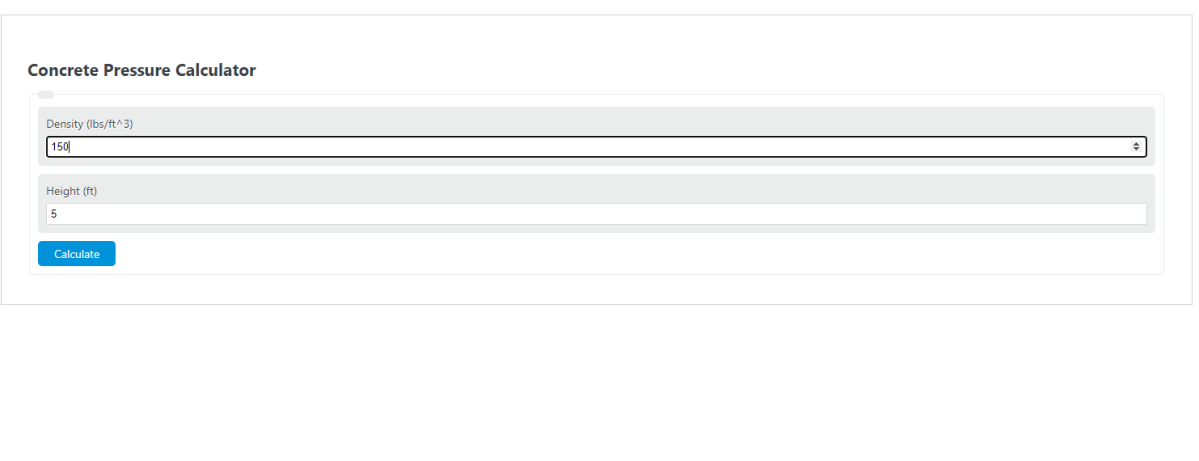Enter the total density of the concrete and the total height of the concrete column into the calculator to determine the concrete pressure.
- Pressure Test Safe Distance Calculator
- Column Volume Calculator
- Water Pressure Elevation Calculator
- Die Cushion Pressure Calculator
- Concrete Pulse Velocity Calculator
- Concrete Area Calculator
Concrete Pressure Formula
The following formula is used to calculate the pressure exerted by a concrete column.
CP = D * H
- Where CP is the concrete pressure (pounds/square foot)
- D is the density of the concrete (pounds/cubic foot)
- Standard concrete has a rough density of 150 lbs/ft^3
- H is the height of the concrete column (feet)
To calculate the concrete pressure, multiply the density of the concrete by the height of the concrete pour.
What is Concrete Pressure?
Definition:
Concrete pressure is a measure of the total force per unit area that a column of uniform concrete exerts on the surface below it.
How to calculate Concrete Pressure?
Example Problem:
The following example outlines how to calculate a concrete pressure.
First, determine the density of the concrete. In this example, we will use a standard density of 150 lbs/ft^3.
Next, determine the height of the concrete. The column of concrete in this example has a height of 5 feet.
Finally, calculate the concrete pressure using the formula above:
CP = D * H
CP = 5*150
CP = 750 lbs/ft^2
